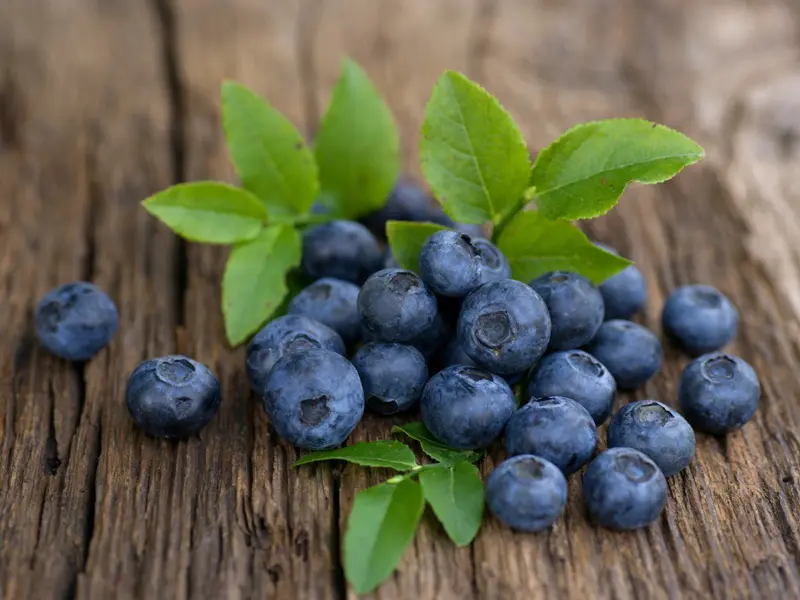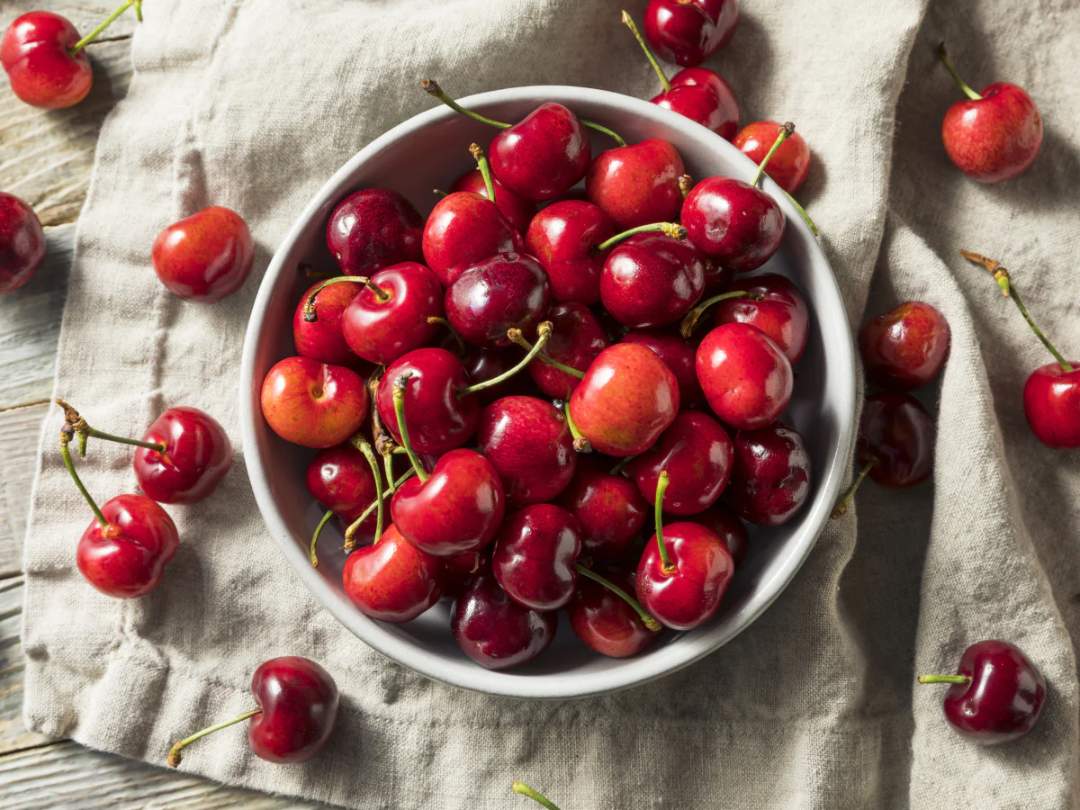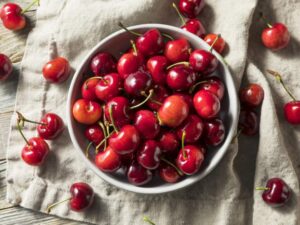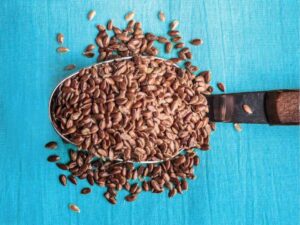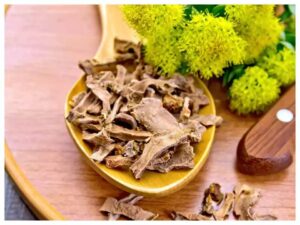The Mysterious Origins of Bilberry
A Curious Tale of Ancient Folklore and Medicinal Powers
The discovery of bilberry, also known as European blueberry, is shrouded in mystery and folklore. Although the exact origin of this small, blue-black berry is unknown, it has been used for medicinal purposes for centuries, dating back to ancient times.
Tales of Bilberry’s Healing Powers
According to legend, bilberry was first discovered by British Royal Air Force pilots during World War II. The story goes that pilots who consumed bilberry jam before flying at night had improved night vision, which allowed them to spot enemy targets more easily. This led to the development of bilberry supplements for pilots and soldiers, which were believed to enhance night vision.
However, this is just one of many stories surrounding bilberry’s origins and medicinal properties. In fact, bilberry has been used for medicinal purposes for centuries, with records dating back to ancient Greece and Rome.
Ancient Medicinal Uses of Bilberry
In ancient times, bilberry was used to treat a variety of health conditions. The ancient Greeks and Romans used the berry to treat diarrhea, inflammation, and infections, while medieval Europeans used it to improve digestion and treat liver and kidney problems.
Bilberry was also used in traditional Chinese medicine to treat eye problems, such as cataracts and glaucoma. Native American tribes used the plant to treat a range of ailments, including menstrual cramps, bladder problems, and fever.
The Science Behind Bilberry’s Medicinal Properties
While the exact mechanism behind bilberry’s medicinal properties is still not fully understood, research has identified several potential benefits of this tiny berry. Bilberry is rich in antioxidants, which can protect against cellular damage caused by free radicals. It also contains anthocyanins, which are compounds that give the berry its distinctive blue-black color and may have anti-inflammatory and anti-cancer properties.
Studies have also shown that bilberry may have a positive impact on eye health, particularly in improving night vision and reducing eye strain. This is believed to be due to the berry’s ability to increase blood flow to the retina and improve the function of the visual system.
Conclusion
In conclusion, while the exact origins of bilberry may be shrouded in mystery and legend, its medicinal properties have been known for centuries. From ancient Greek and Roman medicine to traditional Chinese and Native American remedies, bilberry has been used to treat a wide range of health conditions. While more research is needed to fully understand the mechanisms behind its medicinal properties, the potential benefits of bilberry are certainly worth exploring further.

The Power of Bilberry: Exploring its Health Benefits
Antioxidant Properties of Bilberry
One of the most notable benefits of bilberry is its high antioxidant content. Antioxidants are compounds that help protect the body against oxidative stress caused by free radicals, which can lead to cellular damage and disease. Bilberry is particularly rich in a type of flavonoid called anthocyanins, which give the berry its deep blue color.
Studies have shown that bilberry extracts and supplements may have powerful antioxidant effects. For example, one study found that consuming bilberry juice for six weeks significantly reduced oxidative stress in overweight and obese individuals. Another study found that taking bilberry supplements for 12 weeks improved antioxidant status and reduced inflammation in people with metabolic syndrome.
Improved Eye Health
Bilberry is perhaps best known for its potential benefits to eye health. The berry has been traditionally used for centuries to treat a range of eye conditions, including cataracts and macular degeneration.
Research suggests that the anthocyanins in bilberry may be responsible for its eye health benefits. Anthocyanins have been shown to improve blood flow to the retina, which is essential for maintaining healthy eyesight. Additionally, bilberry may help reduce inflammation in the eyes and protect against oxidative stress, both of which can contribute to age-related eye diseases.
Several studies have shown that bilberry may be effective in improving night vision, which is particularly important for pilots and other individuals who need to see well in low light conditions. A study of Air Force pilots found that those who consumed bilberry supplements had improved night vision compared to those who did not.
Anti-Inflammatory Effects
Inflammation is a natural response of the body’s immune system to injury or infection. However, chronic inflammation can contribute to a range of health problems, including heart disease, cancer, and autoimmune disorders.
Research suggests that bilberry may have anti-inflammatory effects. In one study, participants who consumed bilberry extract for six weeks had lower levels of inflammation markers in their blood compared to those who did not. Another study found that bilberry extract reduced inflammation and oxidative stress in rats with arthritis.
Improved Cardiovascular Health
Bilberry may also have potential benefits for cardiovascular health. The berry contains compounds called polyphenols, which have been shown to improve blood flow and reduce the risk of heart disease.
One study found that consuming bilberry supplements for six weeks improved blood flow in the legs of individuals with peripheral artery disease. Another study found that bilberry extract reduced blood pressure in people with mild hypertension.
Potential Anti-Cancer Properties
Some research suggests that bilberry may have potential anti-cancer properties. The anthocyanins in bilberry have been shown to inhibit the growth of cancer cells in test-tube studies.
Additionally, animal studies have found that bilberry extract can help reduce the growth of tumors and prevent the spread of cancer cells. However, more research is needed to determine the potential anti-cancer effects of bilberry in humans.
Other Potential Benefits
In addition to the benefits discussed above, bilberry may have other potential health benefits. For example, some studies suggest that bilberry may help improve cognitive function and memory, although more research is needed to confirm these findings.
Additionally, bilberry may help improve skin health by reducing inflammation and protecting against oxidative stress. One study found that a cream containing bilberry extract improved skin hydration and elasticity in healthy young women.
Bilberry may also have potential benefits for diabetes management. The berry contains compounds called quercetin and resveratrol, which have been shown to help regulate blood sugar levels and improve insulin sensitivity in animal studies. However, more research is needed to determine whether these effects extend to humans.
How to Incorporate Bilberry into Your Diet
Bilberry is a versatile fruit that can be enjoyed in a variety of ways. Fresh bilberries can be eaten on their own as a snack or added to smoothies, yogurt, or oatmeal for a nutrient boost.
Bilberry can also be consumed in supplement form, typically as a capsule or tablet. It is important to choose a high-quality supplement from a reputable manufacturer to ensure purity and potency.
Precautions and Side Effects
While bilberry is generally considered safe, there are some precautions and potential side effects to be aware of. Bilberry may interact with certain medications, such as blood thinners and diabetes medications, so it is important to talk to your doctor before taking bilberry supplements if you are on medication.
Additionally, some people may experience side effects such as gastrointestinal upset or allergic reactions when consuming bilberry. If you experience any adverse effects after consuming bilberry, stop taking it and consult with your healthcare provider.
Conclusion
Bilberry is a small but mighty fruit with a wide range of potential health benefits. From improving eye health to reducing inflammation and supporting cardiovascular health, bilberry has been used for centuries for its medicinal properties.
While more research is needed to fully understand the mechanisms behind these benefits, incorporating bilberry into your diet or taking a high-quality supplement may be a simple and effective way to support your overall health and well-being. As with any supplement, it is important to talk to your healthcare provider before starting to take bilberry.
The Nutritional Components and Core Ingredients of Bilberry
Nutritional Components of Bilberry
Bilberry is a nutrient-dense fruit that is rich in a variety of vitamins and minerals. One cup (148 grams) of fresh bilberries contains:
- Calories: 84
- Protein: 1 gram
- Fat: 1 gram
- Carbohydrates: 21 grams
- Fiber: 4 grams
- Vitamin C: 24% of the Daily Value (DV)
- Vitamin K: 36% of the DV
- Vitamin E: 8% of the DV
- Potassium: 6% of the DV
- Manganese: 25% of the DV
Bilberry is also rich in anthocyanins, a type of flavonoid that gives the berry its distinctive deep blue color. Anthocyanins have powerful antioxidant properties that help protect against cellular damage and inflammation.
Core Ingredients of Bilberry
The core ingredients of bilberry are its flavonoids, particularly anthocyanins. These compounds are responsible for many of the health benefits associated with bilberry.
Anthocyanins are pigments that are present in many fruits and vegetables, including blueberries, raspberries, and red cabbage. They are thought to protect against cellular damage caused by free radicals and to have anti-inflammatory properties.
In addition to anthocyanins, bilberry also contains other flavonoids, including quercetin and myricetin, as well as vitamins and minerals like vitamin C, vitamin E, and potassium.
Health Benefits of Bilberry’s Nutritional Components and Core Ingredients
The nutritional components and core ingredients of bilberry have been linked to a range of potential health benefits, including:
- Improved eye health: Bilberry’s anthocyanins may improve blood flow to the retina, reducing the risk of age-related eye diseases like macular degeneration and cataracts.
- Reduced inflammation: The flavonoids in bilberry may help reduce inflammation throughout the body, which is linked to a range of chronic health conditions.
- Improved cardiovascular health: Bilberry’s polyphenols may improve blood flow and reduce the risk of heart disease.
- Anti-cancer properties: Some research suggests that bilberry’s anthocyanins may have anti-cancer properties, inhibiting the growth of cancer cells in test-tube and animal studies.
- Improved cognitive function: Bilberry’s flavonoids may improve cognitive function and memory, although more research is needed to confirm these findings.
- Skin health: Bilberry’s anti-inflammatory and antioxidant properties may help improve skin health, reducing the risk of premature aging and protecting against sun damage.
How to Incorporate Bilberry into Your Diet
Bilberry can be consumed in a variety of forms, including fresh berries, dried berries, and supplements. Fresh bilberries can be eaten on their own as a snack or added to smoothies, yogurt, or oatmeal for a nutrient boost.
Dried bilberries can be added to trail mix or baked goods, while bilberry supplements are available in capsule or tablet form. It is important to choose a high-quality supplement from a reputable manufacturer to ensure purity and potency.
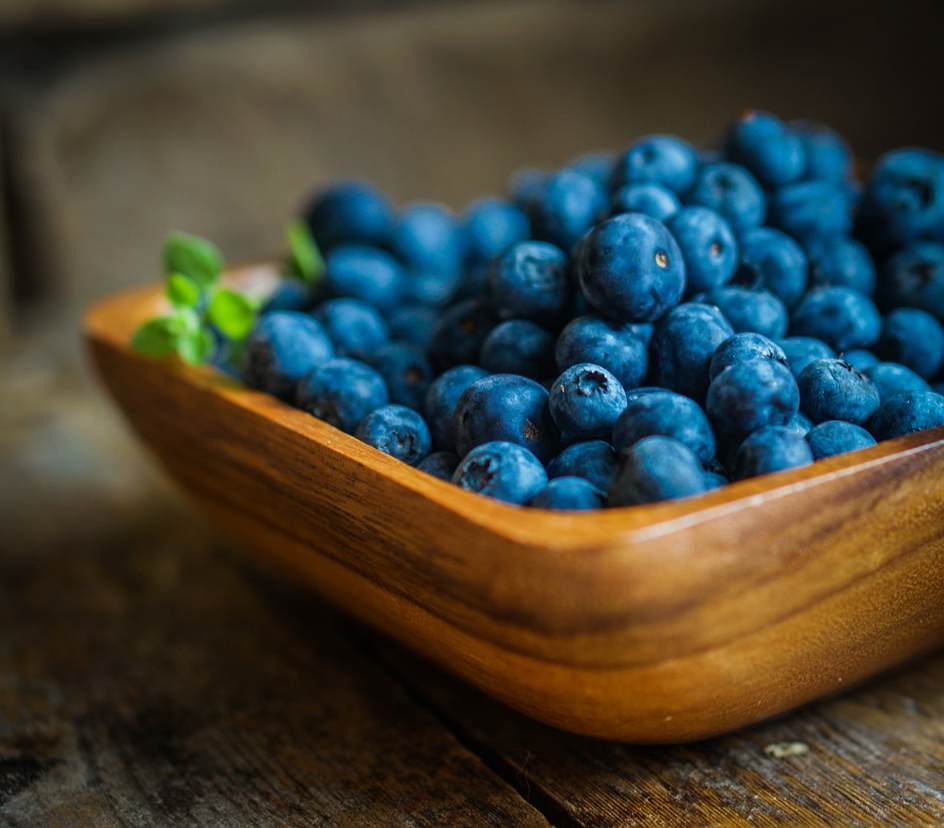
Methods for Consuming Bilberry
Fresh Bilberries
Fresh bilberries are a delicious and nutrient-dense snack that can be enjoyed on their own or added to a variety of dishes. When selecting fresh bilberries, look for plump berries that are deep blue-black in color. They should be firm to the touch and free of mold or soft spots.
Here are some ways to enjoy fresh bilberries:
- Add them to smoothies or yogurt bowls for a nutrient boost.
- Top your oatmeal or pancakes with fresh bilberries for a burst of flavor.
- Mix them with other berries for a colorful fruit salad.
- Enjoy them as a healthy snack on their own.
Dried Bilberries
Dried bilberries are a convenient and shelf-stable option that can be used in a variety of ways. They are made by dehydrating fresh bilberries, which concentrates their flavor and nutrients.
When selecting dried bilberries, look for brands that do not contain added sugars or preservatives. They should be plump and slightly sticky to the touch.
Here are some ways to enjoy dried bilberries:
- Add them to trail mix for a sweet and nutritious snack.
- Mix them into muffins, granola bars, or other baked goods for a burst of flavor.
- Use them as a topping for yogurt or oatmeal.
- Eat them as a healthy snack on their own.
Bilberry Supplements
Bilberry supplements are a convenient and concentrated way to enjoy the potential health benefits of bilberry. They are available in capsule or tablet form and can be found at most health food stores or online retailers.
When selecting a bilberry supplement, look for a high-quality product from a reputable manufacturer. It should contain a standardized extract of bilberry that is free of additives or fillers.
Here are some tips for taking bilberry supplements:
- Follow the recommended dosage on the label.
- Take the supplement with a meal to aid in absorption.
- Talk to your healthcare provider before starting to take a bilberry supplement, especially if you are on medication or have any health concerns.
Bilberry Tea
Bilberry tea is a delicious and soothing way to enjoy the potential health benefits of bilberry. It is made by steeping dried bilberry leaves or berries in hot water.
When selecting bilberry tea, look for organic brands that do not contain added flavors or sweeteners. It should have a deep, rich color and a slightly sweet and tart flavor.
Here are some tips for enjoying bilberry tea:
- Steep 1-2 teaspoons of dried bilberry leaves or berries in hot water for 5-10 minutes.
- Add honey or lemon to taste, if desired.
- Enjoy as a warm and comforting beverage before bed or anytime during the day.
Bilberry Jam and Preserves
Bilberry jam and preserves are a delicious way to enjoy the flavor and potential health benefits of bilberry. They can be spread on toast, mixed into yogurt, or used as a topping for pancakes or waffles.
When selecting bilberry jam or preserves, look for brands that do not contain added sugars or artificial flavors. They should have a deep, rich color and a slightly sweet and tart flavor.
Here are some ways to enjoy bilberry jam and preserves:
- Spread on toast or English muffins for a flavorful breakfast.
- Mix into yogurt for a healthy and delicious snack
- Use as a topping for pancakes, waffles, or oatmeal for a burst of flavor.
- Mix with cream cheese for a tasty and easy dip.
Bilberry Smoothies
Bilberry smoothies are a delicious and refreshing way to enjoy the potential health benefits of bilberry. They can be made with fresh or frozen bilberries and a variety of other ingredients.
When making a bilberry smoothie, try combining bilberries with other berries, such as strawberries or raspberries, for a flavorful and nutritious drink.
Here is a simple recipe for a bilberry smoothie:
- 1 cup fresh or frozen bilberries
- 1/2 cup plain Greek yogurt
- 1/2 cup unsweetened almond milk
- 1 banana
- 1 tsp honey (optional)
Blend all ingredients together in a blender until smooth. Pour into a glass and enjoy!
Bilberry Syrup
Bilberry syrup is a delicious and versatile way to enjoy the flavor and potential health benefits of bilberry. It can be used as a topping for pancakes, waffles, or ice cream, or added to sparkling water for a refreshing drink.
When making bilberry syrup, look for fresh or frozen bilberries and follow a simple recipe that calls for sugar and water.
Here is a simple recipe for bilberry syrup:
- 1 cup fresh or frozen bilberries
- 1 cup water
- 1 cup sugar
Combine all ingredients in a saucepan and bring to a boil. Reduce heat and simmer for 20-30 minutes, stirring occasionally, until the mixture has thickened and the berries have burst. Strain the mixture through a fine-mesh sieve and discard the solids. Store the syrup in a jar in the refrigerator for up to 1 month.
Conclusion
There are many ways to enjoy the potential health benefits of bilberry, from fresh berries to supplements, tea, jam, and syrup. Incorporating bilberry into your diet may be a simple and delicious way to support your overall health and well-being.
When selecting bilberry products, look for high-quality brands that are free of additives or fillers. As with any supplement or dietary change, it is important to talk to your healthcare provider before making any significant changes to your diet or lifestyle.
Potential Side Effects and When to Avoid Taking Bilberry
Understanding the Risks and Precautions of Bilberry Consumption
While bilberry is generally considered safe for most people, there are some potential side effects and situations where it may not be appropriate to take bilberry. In this article, we will explore the potential side effects and when to avoid taking bilberry.
Potential Side Effects of Bilberry
While rare, some people may experience side effects when consuming bilberry. These side effects may include:
- Gastrointestinal upset, such as nausea, vomiting, or diarrhea
- Allergic reactions, such as hives, rash, or swelling
If you experience any adverse effects after consuming bilberry, stop taking it and consult with your healthcare provider.
Precautions When Taking Bilberry
While bilberry is generally safe for most people, there are some precautions to be aware of. Here are some situations where it may be necessary to avoid or limit bilberry consumption:
- Allergies: If you are allergic to berries or have had an allergic reaction to bilberry in the past, it is important to avoid bilberry consumption.
- Medications: Bilberry may interact with certain medications, including blood thinners and diabetes medications. If you are taking any medication, it is important to talk to your healthcare provider before taking bilberry supplements or consuming large amounts of bilberry.
- Pregnancy and breastfeeding: While there is no evidence to suggest that bilberry is harmful during pregnancy or breastfeeding, it is important to talk to your healthcare provider before consuming bilberry or any other dietary supplement during these times.
- Surgery: Bilberry may increase the risk of bleeding during surgery, so it is important to stop taking bilberry supplements at least 2 weeks before any scheduled surgery.
When to Avoid Taking Bilberry
In addition to the precautions listed above, there are some situations where it may be necessary to avoid taking bilberry altogether. These situations may include:
- Low blood pressure: Bilberry may lower blood pressure, so if you already have low blood pressure, it may be necessary to avoid bilberry consumption.
- Blood disorders: Bilberry may increase the risk of bleeding, so if you have a bleeding disorder or are taking blood thinners, it may be necessary to avoid bilberry consumption.
- Kidney problems: Bilberry may interact with certain medications used to treat kidney problems, so it is important to talk to your healthcare provider before taking bilberry supplements if you have kidney problems.
Conclusion
Bilberry is a nutrient-dense fruit that is packed with essential vitamins, minerals, and antioxidants. While it is generally considered safe for most people, there are some potential side effects and situations where it may be necessary to avoid or limit bilberry consumption.
If you experience any adverse effects after consuming bilberry, stop taking it and consult with your healthcare provider. As with any supplement or dietary change, it is important to talk to your healthcare provider before making any significant changes to your diet or lifestyle. By understanding the risks and precautions of bilberry consumption, you can make informed decisions about incorporating bilberry into your diet.
